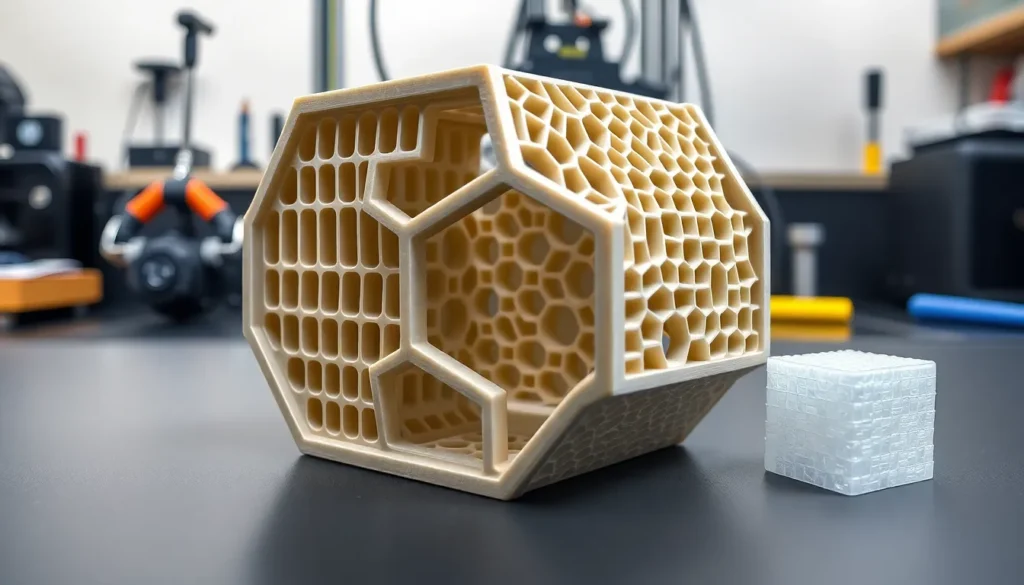Table of Contents
ToggleIn a world where multitasking is the norm and battery life feels like a mythical creature, efficient laptop CPUs have become the unsung heroes of our digital lives. These tiny powerhouses are like the espresso shots of computing—delivering a jolt of performance without sending your battery into a panic. Who doesn’t want a laptop that can handle everything from binge-watching the latest series to crunching numbers for that side hustle?
Overview of Efficient Laptop CPUs
Efficient laptop CPUs play a crucial role in modern computing. These processors optimize performance while minimizing power consumption. Performance demands vary. Users enjoy seamless multitasking, whether streaming videos or running complex applications. Battery longevity remains a significant consideration as users increasingly rely on portable devices.
Recent advancements in CPU technology enhance efficiency. Manufacturers such as Intel and AMD focus on energy-efficient designs. Newer architectures, like Intel’s Alder Lake and AMD’s Ryzen 5000 series, demonstrate significant improvements in performance per watt. Such innovations lead to enhanced computing power without taxing battery life excessively.
Core count contributes to overall performance. Many efficient CPUs feature higher core counts that allow for parallel processing. This design facilitates smoother operation during resource-heavy tasks, such as video editing or gaming. Thermal management also plays a vital role. Enhanced cooling solutions paired with efficient CPUs prevent overheating while maximizing performance output.
Real-world benchmarks reveal the impact of efficient CPUs. Laptops equipped with these processors yield longer battery life, averaging 10 to 15 hours on a single charge. Users notice improved responsiveness during intensive tasks, further highlighting the benefits of these CPUs. Efficiency ratings and power draw specifications aid potential buyers in selecting the right device.
Manufacturers provide a range of options catering to varying user needs. From lightweight ultrabooks to powerful gaming laptops, efficient CPUs adapt to different environments. As the demand for energy-efficient technology continues to grow, future developments promise even more breakthroughs in laptop CPU efficiency.
Key Features of Efficient Laptop CPUs

Efficient laptop CPUs offer several key features that enhance performance and extend battery life.
Performance Metrics
Performance metrics gauge a CPU’s efficiency and capability. Clock speed, measured in GHz, impacts how quickly tasks are processed. Core count significantly contributes to multitasking; CPUs with more cores handle simultaneous applications effectively. Benchmark scores, such as those from Cinebench and Geekbench, provide insight into real-world performance. Laptops equipped with these processors demonstrate responsiveness during demanding tasks, achieving competitive scores in professional and gaming applications. Energy-efficient architectures, like Intel’s Alder Lake and AMD’s Ryzen series, optimize performance with lower power usage, ensuring users enjoy a smooth experience without sacrificing productivity.
Power Consumption
Power consumption plays a critical role in determining the overall efficiency of a laptop CPU. Measured in watts, lower power consumption translates to extended battery life. Modern CPUs utilize advanced technologies that enable dynamic power management, adjusting performance based on workload demands. This capability reduces unnecessary energy use during light tasks while providing full power for intensive applications. Real-world tests indicate that efficient CPUs can maintain an average power draw of 15 to 25 watts, offering significant energy savings over traditional processors. Consequently, users benefit from reliable performance throughout the day without frequent recharging.
Top Efficient Laptop CPUs in 2023
High-performance laptops require efficient CPUs to balance power and battery life. The latest models from leading manufacturers reflect significant improvements in both areas.
Intel Core Processors
Intel’s Core processors, particularly the 12th and 13th generations like Alder Lake, exemplify efficiency in design. Optimized hybrid architecture combines high-performance and efficient cores, allowing seamless multitasking without excessive power consumption. Performance metrics show clock speeds ranging from 2.4 to 5.6 GHz, accommodating demanding applications. Benchmarks indicate that devices with these CPUs achieve battery life upwards of 12 hours on average. Users experience responsive performance across various tasks, including video editing and gaming, highlighting Intel’s commitment to energy efficiency.
AMD Ryzen Processors
AMD’s Ryzen 5000 series showcases a robust balance between speed and energy use. Featuring Zen 3 architecture, these processors deliver impressive performance with power draws typically between 15 and 30 watts. Clock speeds range from 2.9 GHz to 4.9 GHz, providing ample processing power for multitasking. Real-world testing confirms that laptops powered by Ryzen CPUs maintain battery life averaging 10 to 14 hours. As a result, users can enjoy extensive performance without constant recharging. AMD continues to innovate, focusing on advanced manufacturing techniques that further enhance energy efficiency in portable devices.
Benefits of Using Efficient Laptop CPUs
Efficient laptop CPUs significantly enhance overall performance while conserving battery life. Users experience seamless multitasking capabilities, whether they are streaming videos or executing complex applications. Laptop CPUs designed for energy efficiency offer longer battery durations, commonly ranging from 10 to 15 hours per charge.
Higher core counts in these CPUs contribute to smoother operation during resource-intensive tasks. Improved thermal management features effectively prevent overheating, leading to stable performance throughout demanding activities. Recent benchmarks indicate that laptops equipped with efficient CPUs achieve competitive scores in both gaming and professional contexts.
Dynamic power management allows modern CPUs to adjust performance based on workload. This technology helps maintain average power draws between 15 and 25 watts, which supports sustained performance without frequent charging. Manufacturers are leveraging innovations such as Intel’s Alder Lake and AMD’s Ryzen 5000 series, which exemplify advancements in energy-efficient designs.
Optimized clock speeds also play a pivotal role in enhancing efficiency. Models like Intel’s 12th and 13th generation processors boast speeds from 2.4 to 5.6 GHz, while AMD’s Ryzen 5000 series offers clock speeds ranging from 2.9 to 4.9 GHz. Both lineups ensure users can operate applications like video editing without sacrificing battery life or performance.
Additional benefits include adaptability to diverse user needs, as manufacturers provide various options for different tasks. Enhanced efficiency aligns with growing consumer demand for sustainable technology. Future developments suggest an even broader range of breakthroughs aimed at maximizing performance while minimizing power consumption.
Efficient laptop CPUs are redefining the computing experience. Their ability to balance performance and power consumption is transforming how users interact with technology. With advancements from Intel and AMD leading the charge, these processors are not just about speed but also longevity.
As laptops become more integral to daily life, the demand for energy-efficient solutions will only grow. The ongoing innovations in CPU design promise to deliver even greater efficiency and performance. This evolution ensures that users can enjoy powerful computing without compromising battery life, making efficient CPUs a vital component of modern laptops.




